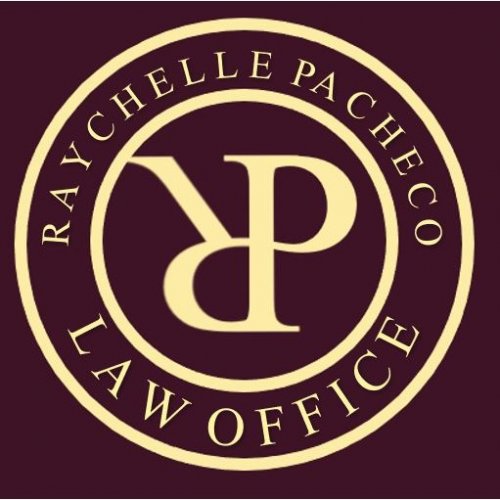Best Inheritance Law Lawyers in Philippines
Share your needs with us, get contacted by law firms.
Free. Takes 2 min.
Or refine your search by selecting a city:
List of the best lawyers in Philippines

Dagsaan Monterde Castillo Law and Notary Public (DMC LAW)
15 minutes Free Consultation1. About Inheritance Law in Philippines
Inheritance law in the Philippines governs how a deceased person’s assets are distributed to heirs. It covers both testate situations (where a valid will exists) and intestate situations (where there is no valid will). The Civil Code and related family and court rules set the framework for probate, extrajudicial settlements, legitimes, and the rights of forced heirs.
Key concepts include testamentary succession, intestate succession, legitimes or legitimate shares of forced heirs, and the procedures to settle estates through probate or extrajudicial settlement. Property categories such as real property, bank accounts, and shares in corporations are all subject to these rules. Estate administration often requires coordination among heirs, lenders, and government agencies.
The process typically begins with determining whether a will exists, validating its authenticity, and then securing appropriate court orders or public agreements among heirs. Depending on the complexity and location of assets, the timeline and cost can vary significantly. It is important to engage qualified legal counsel to guide you through proper forms, notices, and filings.
“The Civil Code governs succession, including testamentary and intestate succession, and provides for legitimes of forced heirs.”
Source: Official Gazette and government resources covering the Civil Code and succession basics. See Civil Code provisions at the Official Gazette and related court rules for succession matters. Civil Code of the Philippines, Supreme Court Rules on Succession.
2. Why You May Need a Lawyer
Scenario 1: A child discovers a relative left a will that disinherited him. An attorney can evaluate the validity of the will, check for testamentary capacity, and review potential undue influence claims. This helps protect legitimate shares and reduce the risk of later challenges.
Scenario 2: You are asked to probate a will that multiple beneficiaries contest. A lawyer can help gather documents, file the proper petitions, and present evidence in court to support or rebut the will’s validity.
Scenario 3: You are an heir seeking to secure your legitime when a parent leaves much to non-heirs. A knowledgeable solicitor can interpret forced heir rights under the Civil Code and pursue appropriate remedies in court.
Scenario 4: A decedent owned real property in another province or abroad. An attorney can handle ancillary probate, coordination with foreign courts, and ensure proper transfer of title in the Philippines.
Scenario 5: All heirs agree to settle the estate outside of court, but the assets include multiple properties and debts. A lawyer can draft and file an extrajudicial settlement with required publications and creditor notification to prevent later disputes.
Scenario 6: You face potential tax questions related to inheritance. A legal counsel can interpret current tax rules and ensure compliance with the Bureau of Internal Revenue requirements when necessary.
3. Local Laws Overview
Civil Code of the Philippines (Republic Act No. 386) governs succession, including both testamentary and intestate transfers, and sets out the rights of forced heirs and legitimes. It forms the backbone of how estates are divided among heirs and beneficiaries. Effective since 18 June 1949.
Family Code of the Philippines (Executive Order No. 209) complements succession rules by addressing family relationships, legitimacy, illegitimate children, and related rights that affect inheritance. Effective date: 3 August 1988.
Rules of Court on succession, including Rule 74 for probate of wills and extrajudicial settlements, provide the procedural framework for how estates are settled in court or through agreements among heirs. These rules guide filing requirements, notices, and the stages of administration. These rules have been amended over time by the Supreme Court to reflect evolving practice.
Tax considerations - The Tax Reform for Acceleration and Inclusion (TRAIN) Act repealed the estate tax for transfers at death, effective January 1, 2018, simplifying some tax aspects of inheritance for many estates. This change is reflected in official government communications and tax guidance. Estate tax repeal effective 1 January 2018.
“Estate tax was repealed by the TRAIN Act, simplifying the tax landscape for heirs.”
Source: Official Gazette filings and government guidance. See Republic Act No. 10963 (TRAIN Act) and Official Gazette resources on the Civil Code and Family Code. For procedural details, consult the Supreme Court’s Rules of Court page. Civil Code, Family Code, Supreme Court Rules.
4. Frequently Asked Questions
What is intestate succession in the Philippines?
Intestate succession happens when a person dies without a valid will. The Civil Code sets the order of heirs and their shares when there is no testament.
How do I start probate of a will in the Philippines?
File a petition for probate in the trial court where the deceased resided. Attach the will, death certificate, and proof of heirs. The court will appoint an executor or administrator.
When should I consider extrajudicial settlement?
Use extrajudicial settlement when there is no will and all heirs agree to distribute assets. It requires a public instrument and publication in a newspaper for a set period.
How long does probate typically take?
Timeline varies with case complexity and court backlog. A simple probate may take several months; complex estates can extend to years.
Do I need to hire a lawyer for probate or extrajudicial settlement?
While not strictly required, a lawyer helps ensure correct forms, notices, and filings. They can reduce delays caused by technical or procedural errors.
What are the legitimate shares or legitimes?
Legitime is the portion of the estate reserved by law for forced heirs. It cannot be freely diminished by a will.
Can a will made abroad be recognized in the Philippines?
Wills executed abroad may be recognized if they comply with formal requirements under Philippine law. Local validation procedures still apply.
Where do I file for probate or settlement?
File in the trial court of the place where the decedent resided at the time of death or where assets are located. The court’s jurisdiction depends on the circumstances.
What is the difference between probate and letters of administration?
Probate validates a will and appoints an executor. Letters of administration appoint an administrator when there is no valid will.
Do I qualify as an heir if I am adopted or illegitimate?
Adopted and legitimate children have recognitions under the Family Code and Civil Code. Rights depend on status and parentage recognized by law.
What if there are debts in the estate?
Estate creditors must be paid before distribution to heirs. Courts may oversee settlement plans or require surety for debts.
Is there a standard fee for inheritance matters?
Fees depend on complexity, property value, and court costs. There is no fixed nationwide standard; discuss retainer and rates with your lawyer upfront.
5. Additional Resources
- Official Gazette of the Republic of the Philippines - government portal publishing laws, legal notices, and amendments. Pages for Civil Code, Family Code, and tax reforms are available at Official Gazette.
- Supreme Court of the Philippines - Rules of Court including succession, probate, and extrajudicial settlement procedures. Visit Supreme Court.
- Bureau of Internal Revenue (BIR) - tax guidance related to estates and inherited property, including updates on the estate tax framework after TRAIN Act. See BIR.
6. Next Steps
- Identify your goal and the type of proceeding you may need (probate, extrajudicial settlement, or intestate administration). Note assets, debts, and known heirs.
- Gather essential documents such as death certificate, will (if any), title to property, tax receipts, and any existing estate inventories.
- Check eligibility and start a concise search for a Philippine inheritance law attorney (attorney or solicitor) with civil law experience and probate practice.
- Schedule a consultation to discuss the estate specifics, potential challenges, and estimated costs. Prepare a written list of questions.
- Ask about timelines, required documents, and filing venues. Request a retainer agreement and a clear fee outline before proceeding.
- Engage the attorney, sign the retainer, and provide all documents. The lawyer will prepare petitions, notices, and settlement documents as needed.
Lawzana helps you find the best lawyers and law firms in Philippines through a curated and pre-screened list of qualified legal professionals. Our platform offers rankings and detailed profiles of attorneys and law firms, allowing you to compare based on practice areas, including Inheritance Law, experience, and client feedback.
Each profile includes a description of the firm's areas of practice, client reviews, team members and partners, year of establishment, spoken languages, office locations, contact information, social media presence, and any published articles or resources. Most firms on our platform speak English and are experienced in both local and international legal matters.
Get a quote from top-rated law firms in Philippines — quickly, securely, and without unnecessary hassle.
Disclaimer:
The information provided on this page is for general informational purposes only and does not constitute legal advice. While we strive to ensure the accuracy and relevance of the content, legal information may change over time, and interpretations of the law can vary. You should always consult with a qualified legal professional for advice specific to your situation.
We disclaim all liability for actions taken or not taken based on the content of this page. If you believe any information is incorrect or outdated, please contact us, and we will review and update it where appropriate.
Browse inheritance law law firms by city in Philippines
Refine your search by selecting a city.
















